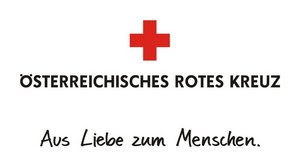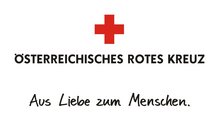
CVA - Cash and Voucher Assistance Training
If you would like to develop your expertise in Cash and Voucher Assistance (CVA) programming, please visit https://cash-hub.org for more information. For further information and CVA enquiries relating to AutRC, please contact surge_training@roteskreuz.at
Please note that some of the links below will take you to the IFRC learning platform. You will need to create an account to access all IFRC e-learning materials.
Introduction to CVA
Type of study: E-learning/ CALP Network
Cash and Voucher Assistance (CVA) – The Fundamentals
Duration: 2-3 hours
Training language: available in English, French, Arabic and Spanish
Objectives
At the end of the course, you'll be able to
- define cash and voucher assistance, including key terminology and definitions, and principles of good practice in CVA.
- describe modalities, delivery mechanisms and different tools for cash and voucher assistance
- define preconditions for the implementation of cash and voucher assistance
- explain the relevance of cash and voucher assistance in different humanitarian contexts and advocate for CVA with different stakeholders
- list the key steps and associated tasks for cash and voucher assistance in the humanitarian project cycle
- identify the roles and responsibilities of different staff functions in the CVA project cycle
This course is a pre-requisite for many Movement courses as well as Level 2 CVA training.
Course description
Designed for anyone interested in learning more about cash and voucher assistance in humanitarian contexts, this course will introduce you to the basics of Cash and Voucher Assistance (CVA).
Applicability
For all RC staff and volunteers who wish to gain a basic understanding of CVA, whether or not it is directly relevant to their role.
Introduction to Market Assessments
Type of study: E-learning/ IFRC learning platform
Market Assessments: Introduction
Duration: 30 minutes
Market Assessments: Rapid Assessment for Markets (RAM)
Duration: 1 hours
Description
The aim of the introductory course is to familiarise participants with the principles of market assessment, to provide basic knowledge and skills for conducting market assessments and to introduce the market assessment tools available.
These courses are a pre-requisite to the Level 2 CVA training.
Content
- Basic market concepts & terminology
Training language: English
Applicability
For all RC staff and volunteers who would like to gain a basic understanding of market assessments, whether or not it is directly relevant to their role.
The objective of the theory training is to build a general knowledge of CVA design and implementation and to incorporate CVA into assessments and responses to humanitarian disasters and other scenarios. There are two options for completing Level 2, one face-to-face and one that is based on a remote learning model.
IFRC Level 2 CVA
Type of study: Face-to-face training
Date: tbc (4 days)
Venue: tbc
Trainers: National and/or international trainers
Training language: English
Description
The aim of the training is to build the capacity of staff and volunteers to incorporate CVA assessments and responses to humanitarian disasters and other scenarios. The CVA training is designed to support staff who may be implementing activities using CVA as a programming option.
Key topics covered include feasibility and response options analysis, markets, CVA design, risk mitigation and contingency planning and preparedness.
Participants will have completed Level 1 training.
This course (either the F2F or online option) is a prerequisite for the PECT.
Content
- Key CVA Terms and Concepts
- CVA Feasibility
- Market Analysis
- CVA Design & implementation
Applicability
The CVA course is designed for RC/RC volunteers/staff and other humanitarian workers who are interested in improving their knowledge and skills in CVA. The course is designed for programme managers and field staff with little or no experience of using CVA, or with experience of only one modality or delivery mechanism.
Introduction to CVA
IFRC Livelihoods Centre online course
Type of study: CVA tutored online course
Date: tbc
Length of course: approx. 7hours/week for 9 weeks
Trainers: international trainers
Training language: English/French/Spanish
Description
The aim of the training is to build the capacity of staff and volunteers to incorporate CVA assessments and responses to humanitarian disasters and other scenarios. The CVA training is designed to support staff who may be implementing activities using CVA as a programming option.
Key topics covered include feasibility and response options analysis, markets, CVA design, risk mitigation and contingency planning and preparedness.
Participants will have completed Level 1 training. This course (either the F2F or online option) is a prerequisite for the PECT.
Content
- key CVA terms and concepts
- CVA feasibility
- Market analysis
- CVA design & implementation
Applicability
The CVA online course is designed for RC/RC volunteers/staff and other humanitarian staff interested in improving their knowledge and skills in CVA. The course is designed for programme managers and field staff with little or no experience of using CVA, or with experience of only one modality or delivery mechanism.
The objective of the practical training is to train experienced staff for potential CVA field deployments. The training is based on the Movement's cash toolkit and standards for cash transfer programming.
PECT - Practical Cash in Emergencies Training
Type of study: Face-to-face training
Date: tbc
Length of course: Five and a half days
Trainers: National and/or international trainers
Training language: English
Description
The objective of the PECT training is to operationalise cash using a scenario-based training model. Participants are taken through a scenario from the initial briefing on the unfolding disaster by the Head of Mission to the design of an appropriate cash-based intervention using a Plan of Action.
Content
- Increase general CVA knowledge
- Develop a CVA response to a disaster scenario using assessment information and response analysis tools.
- Design CVA programmes using tools for set-up and implementation, including community engagement and accountability (CEA), working with service providers, distribution and encashment.
- Incorporate risk assessment, mitigation measures and cash monitoring processes throughout the programme.
Applicability
The course is designed for a diverse, but experienced group: it is not an entry-level training course. Participants should reflect the diversity of the teams implementing CVA: support services (finance, audit and logistics), needs-assessment and programme design, surge capacity (ERU, FACT, RDRT etc) and operational programme management.
Requirements
The training requires participants to have both field level experience and to have completed the CVA Level 2 training.





